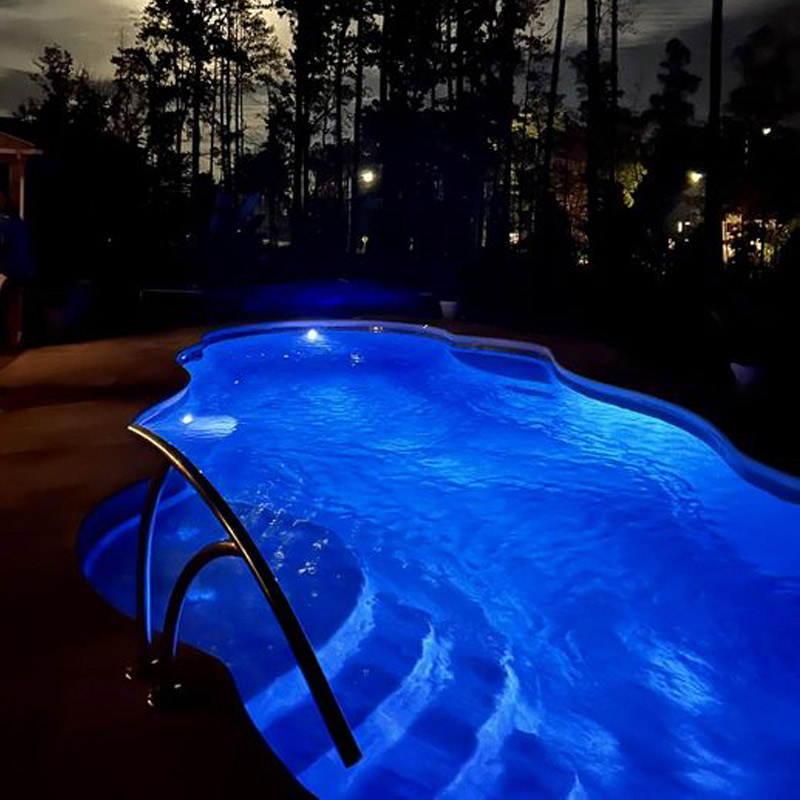


The Basics of Fiberglass Pools:
Fiberglass pools are constructed from a composite material made of tiny fiberglass fibers, resin, and gel coat. This combination provides a smooth, non-porous surface that is not only aesthetically pleasing but also resistant to algae growth and staining. Fiberglass pools are known for their durability, flexibility, and relatively low maintenance compared to other pool materials like concrete or vinyl liner pools.
Understanding the Lifespan:
The structure of your new pool is constructed to last a lifetime. The gel coat or “color” surface is what will take the damage from chemicals, UV, and other factors. Paying close attention to your water chemistry will help ensure that you have a beautiful pool for many years.
Factors Influencing Fiberglass Pool Longevity:
Quality of Construction:
The lifespan of a fiberglass pool is greatly influenced by the quality of its construction. Opting for a reputable and experienced pool installer ensures that the pool is built to industry standards, enhancing its durability.
Ground Movement:
The stability of the ground beneath the pool plays a crucial role. Unstable soil, such as expansive clay, can lead to ground movement that may affect the structural integrity of the pool over time. Proper site preparation is essential to mitigate these risks.
Water Chemistry:
Maintaining proper water chemistry is vital for the longevity of any pool, including fiberglass. Imbalanced water, improper chlorine levels and low acidity or alkalinity, can lead to deterioration of the gelcoat surface and compromise the pool’s structural integrity.
UV Exposure:
Fiberglass pools are generally resistant to UV radiation, but prolonged exposure can still cause some fading and affect the surface. Proper pool wall care and water chemistry along with the use of an automatic cover can help mitigate these effects.
Tips for Maximizing Fiberglass Pool Lifespan:
Regular Maintenance:
Implement a consistent maintenance routine, including monitoring water chemistry, cleaning the pool surface, and inspecting your equipment. Promptly address any issues to prevent them from escalating and if needed consult a pool professional.
Proper Water Balance:
Maintain the correct pH levels and water balance to prevent corrosion and protect the gelcoat surface. Regularly test and adjust the chemical levels as needed.
In conclusion, the lifespan of a fiberglass pool is influenced by various factors, but with proper construction, maintenance, and care, these pools can provide a lifetime of enjoyment. Choosing a reputable installer, monitoring water chemistry, and taking preventive measures can all contribute to maximizing the longevity of your fiberglass pool, ensuring it remains a centerpiece of your backyard oasis for years to come. Please contact our professionals to work with the best fiberglass swimming pool installation company in the Central Virginia region.